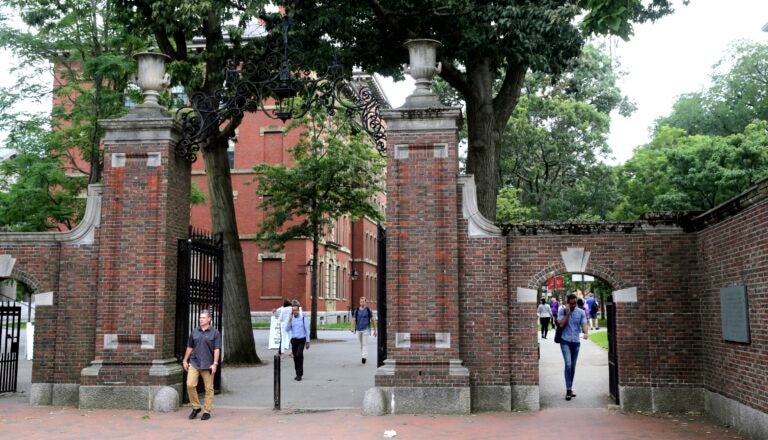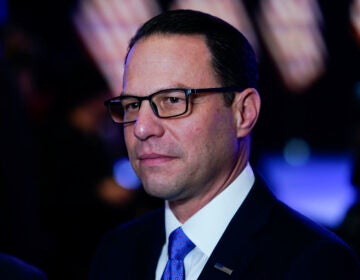The future of higher education
Most universities have decided that at least some in-person instruction will resume this fall. But as coronavirus cases continue to surge, students and faculty are concerned.
Listen 48:59
FILE - In this Aug. 13, 2019, file photo, pedestrians walk through the gates of Harvard Yard at Harvard University in Cambridge, Mass. Harvard and the Massachusetts Institute of Technology filed a federal lawsuit Wednesday, July 8, 2020, challenging the Trump administration’s decision to bar international students from staying in the U.S. if they take classes entirely online this fall. Some institutions, including Harvard, have announced that all instruction will be offered remotely in the fall during the ongoing coronavirus pandemic. (AP Photo/Charles Krupa, File)
Most universities have decided that at least some in-person instruction will resume in the fall. But as coronavirus cases continue to surge in parts of the country, university students, faculty, and staff grapple with what a semester on campus might mean for their health and safety and, conversely, what another semester online might mean for learning outcomes. And in the midst of these hard decisions, the Trump Administration announced, and then reversed, a policy revoking the visas of international students enrolled in online courses at American universities. Why the sudden change and how have international students been coping with the uncertainty? ELISSA NADWORNY, an NPR reporter who covers higher education and college access, joins us along with REBECCA GIVAN, Rutgers professor of Labor Studies and Employment Relations to help us unpack the future of higher education. Then, Tufts Fletcher School of Law and Diplomacy graduate student NEIHA LASHARIE tells us about her experience both as an international student and as a political organizer.
WHYY is your source for fact-based, in-depth journalism and information. As a nonprofit organization, we rely on financial support from readers like you. Please give today.



![CoronavirusPandemic_1024x512[1]](https://whyy.org/wp-content/uploads/2020/03/CoronavirusPandemic_1024x5121-300x150.jpg)

